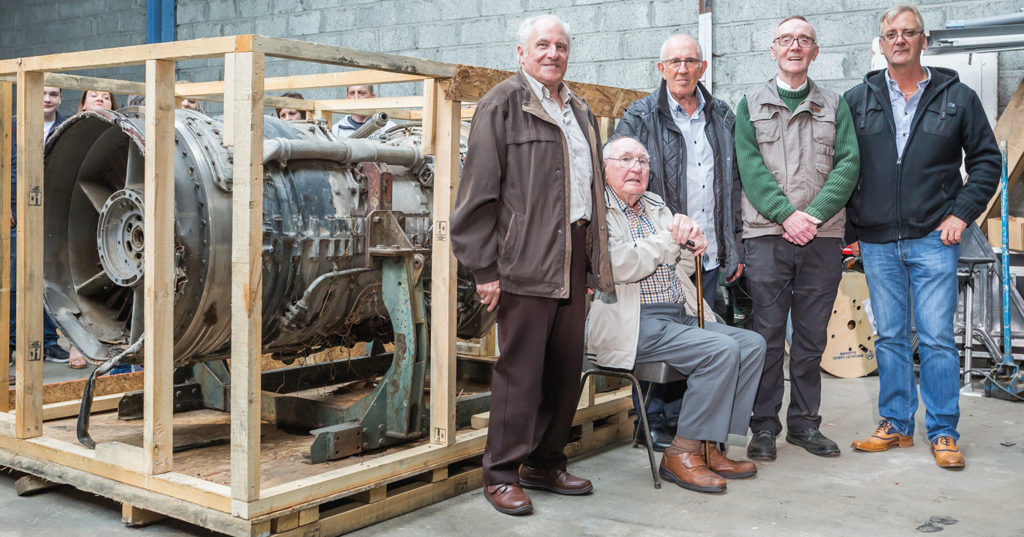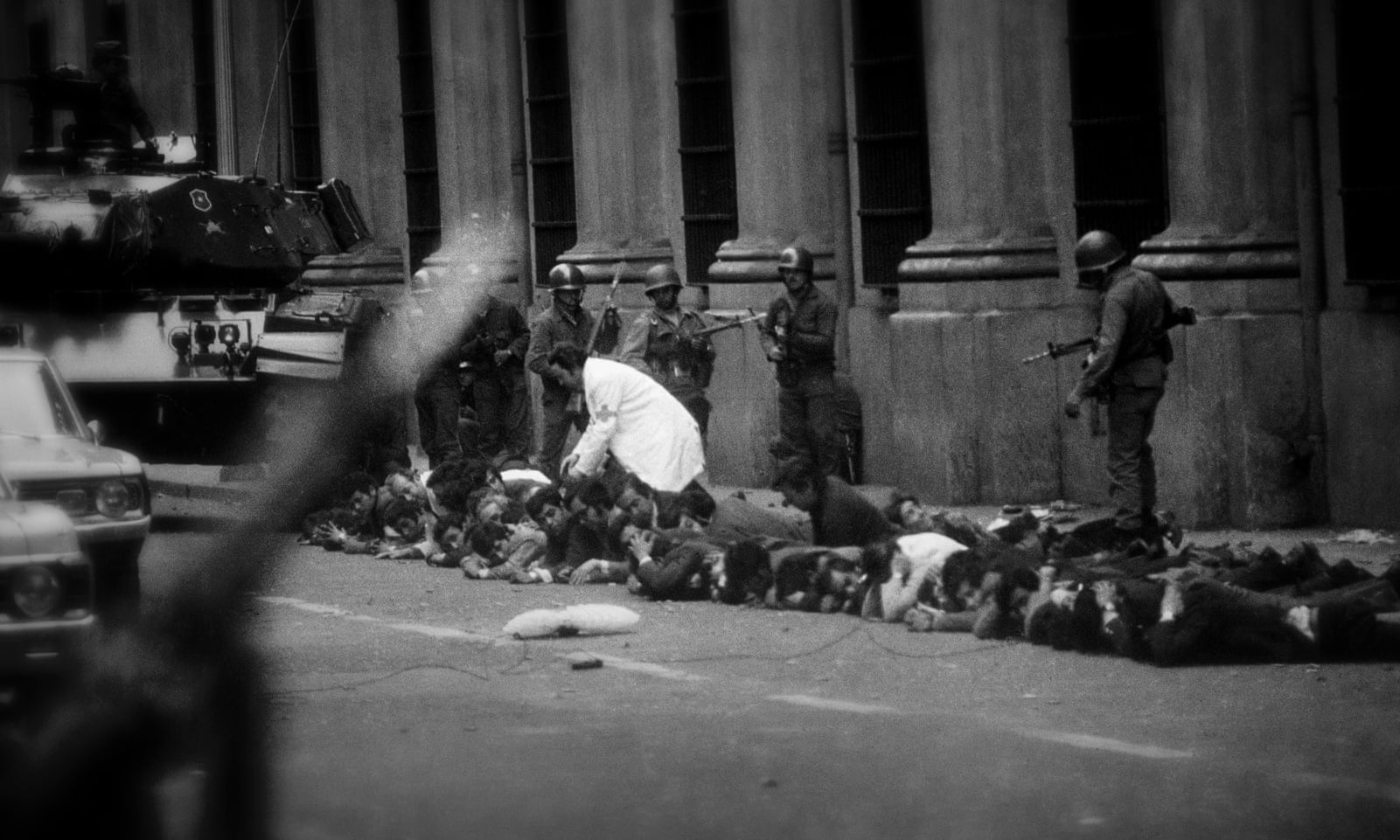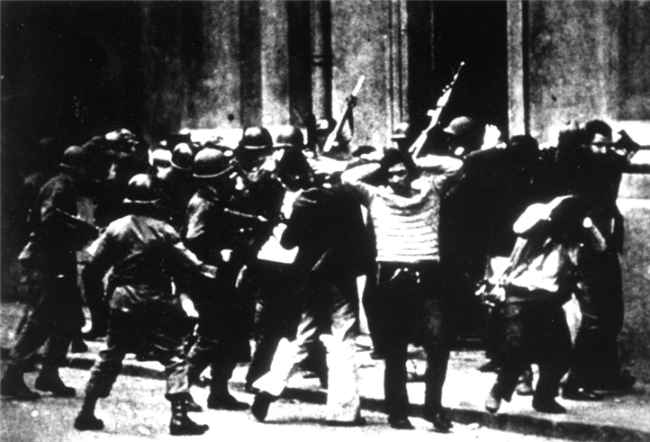This year, Havana Glasgow Film Festival are hosting an edition of the festival in Havana, for the very first time. Here we will be showcasing the best in Scottish film, music and food, with a selection of some of the best Scottish films, past and present.

We’re very proud to be screening Felipe Bustos Sierra’s Nae Paseran, one of the most successful Scottish documentaries ever. I first encountered this film and its director, Felipe Bustos Sierra, when the project was a short, and Felipe was trying to raise funds to expand it to feature length. It’s heartening that Felipe was able to raise the funds to complete the film and finish it just ahead of its world premiere as the closing film at 2018’s Glasgow Film Festival, where it brought down the house.
The film has gone on to repeat that success on its cinema release, where it picked up the Best Feature prize at the BAFTA Scotland awards, with Felipe earning a Best Director nomination for his work on the film. The success of Nae Paseran has been immensely gratifying; picking up on an obscure historical incident, where Scottish workers in East Kilbride refused to work on Hunter Harrier aircraft destined for use in Chile under the dictatorship of General Pinochet, it demonstrates how the power of workers’ solidarity resonates down the decades, and how actions taken in Scotland could impact Latin America. I caught up with Felipe ahead of the film’s screening in Havana to ask him some questions.
Q. How did you first hear about the workers’ boycott in East Kilbride?
The Scottish boycott was one of the myths of solidarity for Chile, mentioned in passing in a long list of solidarity events during the years of campaigning for a return to democracy in Chile. There was little detail, a dry single sentence about industrial action in Scotland against the Chilean Hawker Hunter jets, but it connected directly with the most iconic image of the Chilean coup: those planes firing rockets into the presidential palace where Salvador Allende was refusing to surrender on the day of the coup. It was an unnecessary show of force – the armed forces had almost the entire country covered by then – but it sent a very strong message to anyone who wanted to resist about what lengths the new regime was willing to go to. For many, it became the irreversible moment of the coup and those planes have carried that symbolism since.
When I heard of the boycott, it was in the ’80s in Belgium, where my father had received a refugee visa, and the story was still being told as an ongoing event, even though the boycott had ended years before, but it fired up my imagination about what could be done.

Q. Why did you want to tell the workers’ story, and why now?
As I got older, with so little information available, I’d come to believe that the story had been made up, or at least wildly exaggerated. I moved to Scotland 16 years ago and I met various people here who’d been involved in the campaigns. The story resurfaced and with it, Robert Somerville’s name. He’d been the contact for many of them during the boycott. Out of personal curiosity, I wanted to find out more, any impact that they were aware of. There was no intention to make a film out of it, at first. As the guys said to me early on, they’d assumed that if nothing had been found out after 40 years, it was because there was nothing to be found.
There was no effort to fit into a particular anniversary but I never expected either it would take five years to pull it all together. It was one from the heart and for the heart and my first attempts to get it funded confirmed so. It was very niche to funders: Chilean history from 40 years ago, small-town old Scottish guys on their couch talking about the past and a few leads to investigate. It was a hard sell.
Q. How did they react to being filmed, and how did they feel that their story was being told?
We had the shared background of the coup in Chile, them as activists and me as the son of a refugee, that was the foundation for a quick trust to build on. I also think they appreciated the company, I don’t think many folk were chapping their doors asking about what they’d done. We saw each other regularly, getting to know them and their families, talking about everything. None of us imagined that we’d find so much about their impact and that it would be so overwhelmingly positive so I’ve got to assume they indulged me a fair bit in the first couple of years. The story about the day of the boycott and the disappearance of the engines had appeared in books and commemorative articles before, but the oversimplification of it had left them with a bitter taste. Credit was wrongly attributed and some friendships were damaged. They were very clear I should talk with everyone involved.
While proud of their action, they were so reticent to take credit or recognise any impact, it almost became a problem. That became one of the reasons behind the medal ceremony. Once the Chilean government told me they were going to give them medals, we planned it all in secret. It was important they didn’t hear it from me but straight from a Chilean official. That element of surprise and honesty comes across in their reactions. They were blindsided but most importantly, the penny finally dropped for them. It all had mattered.

Q. How difficult did you find it to get people to speak openly about this period in Chile?
It’s easier in Chile now, in that regard. The dictatorship ended in 1990, many former refugees have returned and the fear of speaking out has mostly subsided. Even the Air Force general, he had been harder to reach, but once we were filming, he talked openly about anything I asked. The degree of self-reflection and introspection obviously varied wildly. It’d be fascinating to interview everyone now that the right-wing Chilean government has been backed in a corner by weeks of protests. For the first time, Pinochet’s constitution might disappear.
After an interview with Stuart Barrie, Bob Fulton’s colleague who went on the boycotting rampage on the day it all began, we watched one of the cuts of the Chilean interviews and he commented on how emotionally articulate the Chileans were, something he noted was much more difficult for the Scots. He was right, their interviews were trickier. They could react to a piece of information, a photo, a document, a memory, but to peel back the layers and get to the emotional truth of it, that took time and conversational gymnastics.
Q.The film has been a total success and hit a nerve in Scotland – how do audiences in Chile react to it?
It was similar but on a smaller scale. The film screened mostly on the art-house, cine-club circuit so the reach was contained, but most of those screenings sold out and the Q&As were fantastic. From the relief of the older generations at their stories getting told on the big screen to the young people who felt the film helped them connect with those old stories and fuelled them with hope. We received a lot of attention from the Chilean media, but it is predominantly right-wing, so they framed the story very carefully as an anecdote that time will forget again, or placing it in a false context – mostly without having seen the film – in the same vein of irrational spin we see in the daily news stream today. For example: 1978, the last year of the boycott, was crucial for Chile, as they nearly went to war with Argentina. A lot of folk talked about that, the ‘perceived lack of foresight of the British to undermine Chilean military against Britain’s enemy in the Falklands’. One commentator noted that the Scots could hardly comment on the brutality of the coup when they had still failed to answer for the 1692 massacre of Glencoe… I suppose it shows the film and the story struck a nerve. It places them all on the wrong side of history and so they try to bullshit their way out of it.
Since the protests began in Chile, we’ve made the film available for free to them. The downloads have skyrocketed and I think the Scots’ peaceful self-determination and humour in the face of adversity are not falling on deaf ears.
Q. How important do you think it is to commemorate radical actions through film?
We now know that the Scottish boycott was a great victory not just for the workers at Rolls Royce, but for the solidarity campaigners and trade unionism, in general. Knowledge of that – which I imagine would have been direly needed in 1978 when Thatcher was campaigning for the general election – was missing then and, as a result, their story was relegated as a footnote. Colin Monie, the editor of Nae Pasaran, used to joke that every time someone asked him what we were working on, to keep the conversation short, he would simply say “Oh it’s about industrial action in the 70s” and no one would follow that up. No interest. It’s a reaction I’ve heard a lot when bringing up working class or trade union history. History has to documented with rigorous research and today more than anything, it needs to be accessible and engaging to reach a crowd. A 90-minute film can be a powerful thing. We’re showered with punching-down hot-takes and a 24/7 spin cycle that inflates or undermines actual news depending on what the government favours. Imagine history being told as it happened and regularly updated in the school curriculum. What would our personal political responsibility today be? What would voter engagement look like today? Would we have billionaires and futuristic military burning up the planet? Would we have a monarchy? Billy Wilder said: “If you’re going to tell the truth, be funny or they’ll kill you.” It was a relief to hear everyone laugh so much in the first screenings of Nae Pasaran. Everyone should engage with politics as if there were a matter of life and death, because they are just that for so many in our society. Good storytelling is a way to reach everyone.

The Battle of Chile
Q. Can you think of any films that have changed your view of the world, and why?
Chilean documentaries were hugely influential when I was growing up, obviously. I first saw the footage of the Hawker Hunter air raid in Patricio Guzman’s The Battle of Chile. It put questions in my head I found many answers for 30 years later when making Nae Pasaran. That trilogy painstakingly documents the Allende years, warts and all, with great humanity. Stand By Me, about 12-year-olds kids who go on an adventure to find the dead body of another 12-year-old so they can become famous. I saw that at the age of 12 and it spoke to me and moved the shit out of me in a way few things had. Very different, but both great humanist films. Some films inform you about the lives of others, some remind you how to feel. Ideally, as a filmmaker, I’d like to keep trying to do both.

Nae Paseran screens in Havana as part of Semana Britanica, with the aid of the British Council.
In the UK and Ireland, you can still purchase the DVD with 40% off using the code TORIESOUT on naepasaran.com


A few men who showed their solidarity with an oppressed Chilean people. It shows how International solidarity however small can have a major impact at a later date, impressive.